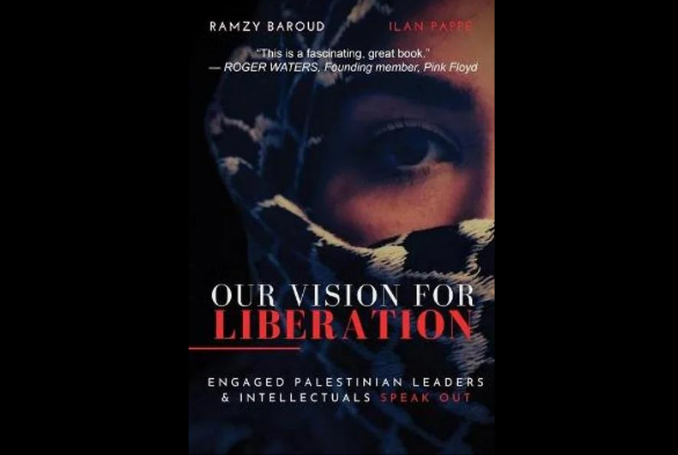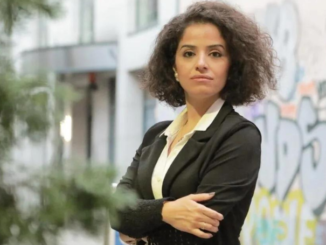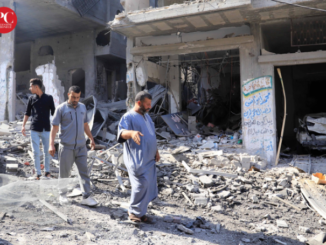
By David Faber
(Our Vision for Liberation: Engaged Palestinian Leaders & Intellectuals Speak Out, Ramzy Baroud and Ilan Pappé, Clarity Press, 2022)
Now that this seminal and historical political work has been launched and is making its way into the world as a new release, the time has come to consolidate its social effectiveness as an instrument of cultural and political struggle. Praise for the editors and the 32 contributing writers cannot be too high.
They have blazed a new strategy for Palestine and the Palestinians, embattled as they are by ongoing Zionist crimes against humanity. It is a strategy of mobilizing the resourceful steadfastness of Palestinian civil society, aided and abetted by international solidarity with this just and noble cause. It is a strategy of maximizing a social and political renewal underway with good prospects of success.
The progressive global movement to Boycott, Divest from and Sanction Israel (BDS) is a key prong of this future-orientated strategy, as argued in this collection. What has been forged here in the fire of struggle is a glimpse into a hopeful and realistic vision for a viable Palestinian future, characterized by freedom, equality, justice and the right of return for refugees.
Baroud and Pappé both being engaged historians, the question arises of how best the Palestinians might focus their efforts to participate in determining their own destiny, despite the slings and arrows of outrageous Zionism in the beloved homeland. Baroud’s inspiration is implicitly that of the greatest political philosopher-practitioner of the 20th century, the Italian Anti-fascist Communist Democrat, Antonio Gramsci.
Gramsci argued that intellectuals needed to be leaders and that true leaders inculcate and foster leadership amongst their communities. Thus, capacity for initiative flows through the community politically, as a cultural revolution building a new political and socioeconomic order. For Gramsci, the revolution is a cultural process, not a mere theatrical gesture. After all, the French Revolution was preceded by the long work of the philosophes, social critics as diverse as Voltaire and Rousseau. So will be the Palestinian `National Revolution’, as the Italian Risorgimento styled itself. These 32 intellectuals will count among its pioneers.
Gramsci was an admirer of the legendary Renaissance political philosopher Nicolò Machiavelli, not the patron saint of backstabbing Shakespeare artfully mistook him for, but the principled Florentine Republican statesman and diplomat of hard and fractious 16th-century reality. Machiavelli taught that politics has its own discipline and dynamics, which the wise respect on pain of disaster. It pays to be politic in politics, and that means tempering ideals with a worldly-wise pragmatism that they may better be realized.
The ancient, millennial culture of the people of Palestine, storied and steeped in poetry, song and dance, represents a vast reservoir of resources for the struggle for Palestinian emancipation. Indeed, the collection’s title refers to Our Vision for Liberation. These splendid cultural and political assets are richly distributed in historic Palestine and around the global diaspora of her people, who hold her resolutely in their hearts.
Inheriting Exile
One essay contributed among many may be singled out here as an example of the high quality of this collection. It is by Dr Samah Sabawi, the Melbourne, Australia-based poet, dramatist, translator and scholar, author of the Victoria University Ph.D. dissertation `Inheriting Exile: transgenerational trauma & the Palestinian Australian Identity’, where she focused on the question of trauma in exile.
Therein she explores the contradictions of settler colonialism, so important in truth-telling about the histories of Palestine and Australia, and their intertwined relations.
The Palestinian diaspora here nestles in a conquered land unceded by its indigenous people, and in 1917 Australian Light Horse signally participated in the British conquest of Palestine. In `Writing in the Blank Spaces’, her contribution to this collection, she mentions her birth as a member of Generation Naksa in Tuffah, Gaza, in 1967, whisked away to a Jordanian refugee camp and thence to Australia via Saudi Arabia, remarking ‘I am the age of exile’.
Fortuitously spared the worst of experiences visiting Occupied Palestine, Dr. Sabawi reports the pain of ‘survivor guilt.’ Assaulted by front-page images of the massacred Palestinians of Sabra and Shatila in 1982, she was moved to ask herself how her `new world, my new Australia, the country that gave me citizenship, dignity, and worth; how could it care so little about the life of Palestinian refugees and align itself with the butchers?’
It is a question that can only be answered in the context of solidarity with the Palestinian people in the homeland and the diaspora. The personal accounts in this collection report the roots of contributors in the Palestinian nation, the past as it provides sustaining support to a vision of the future.
The future of Palestine will be carved out historically and with poetry, through many cultural and political avenues. As the historian of Haifa Johnny Mansour has written, `the act of writing the Palestinian narrative is, in itself, a dialogue with Palestinian history, first and foremost’. Get your hands on a copy of this seminal volume, scan the table of contents, and you will see what he means.







